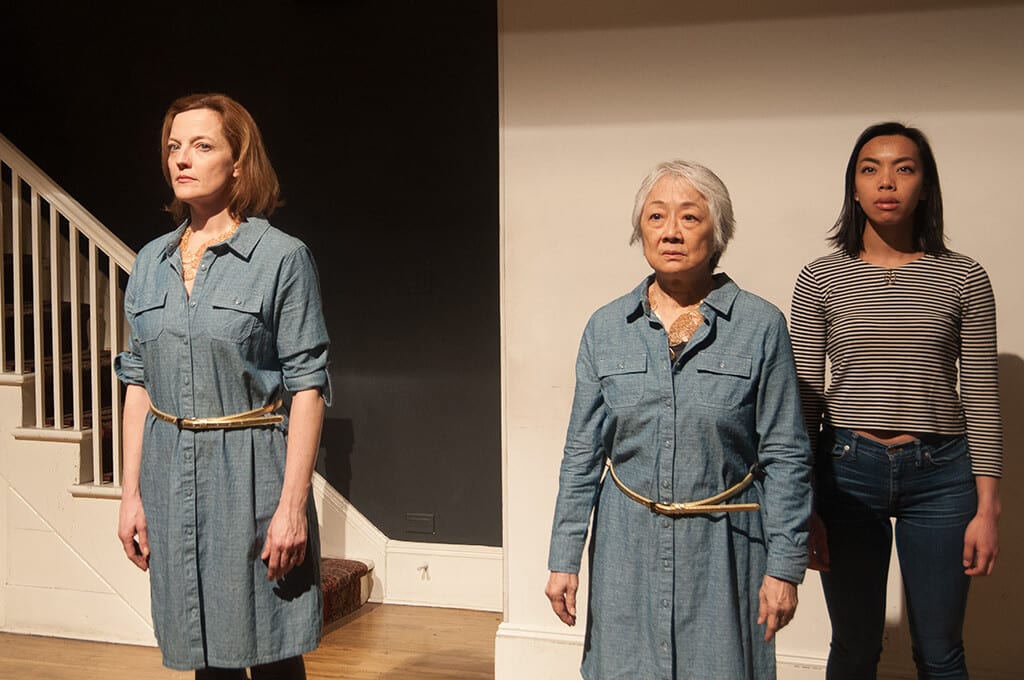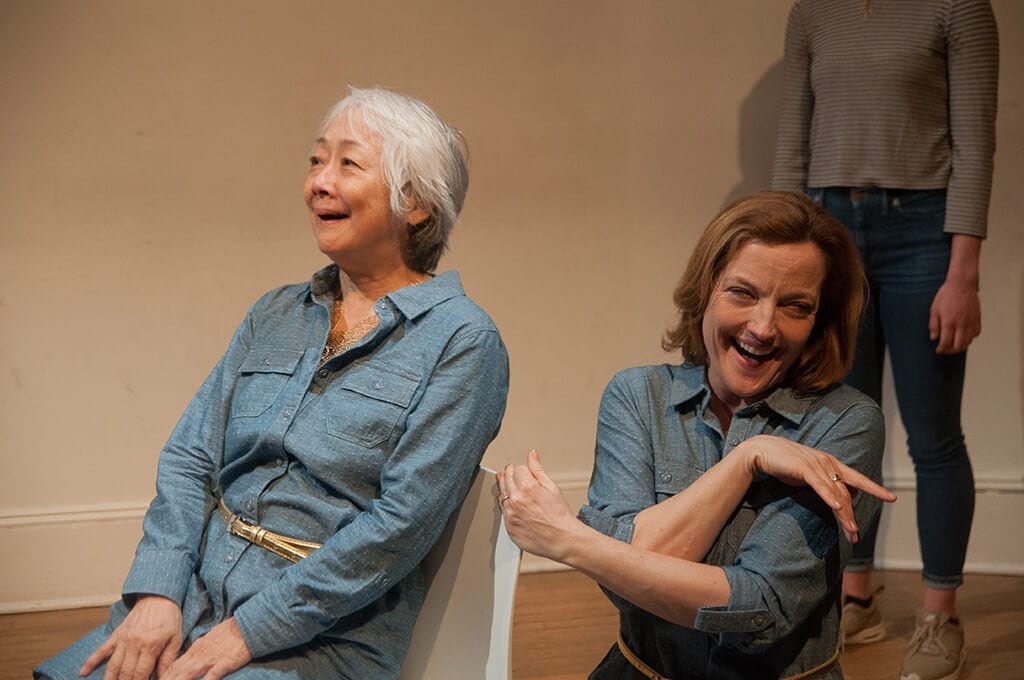The Hundred We Are gives voice to a generation torn. It puts a finger on a nagging feeling that accompanies living in this age: a fear that we will never reach past our limitations as individuals or as a civilization. Seeing this feeling so artfully articulated and played out , while quietly painful, is also a relief. It gives air to a wound we like to pretend we don’t have. It is realistic and yet desperately hopeful.
The Hundred We Are merges the storylines of three women, who are actually the many aspects of one, as they struggle to fulfill their potential in a relentless world. The play guides you through an uncovering of perspectives and the relationship between the past, present and future selves. Each self serves its function as they deal with childhood dreams, a loss of self in adulthood while suffering an unfulfilling marriage and career and the thousand indignities we claim aren’t a problem, and the clarity that comes only when faced with the end of life. The result is a play that is the most accurate representation of what it feels like to be female today that I have seen in a long time. Interestingly, in the script the playwright says these roles could also be played by men, which shows that this experience isn’t limited to gender. I give tremendous credit to the playwright for being able to voice the human experience so well.
That being said…it’s an odd play. You will need to work to suspend your disbelief but bear with it because the end result is worth it. The performance space is a simple white room with a stairway to what might be the theatrical offices above. Thirty tall silver seats are placed on one side, lending to the sparse feeling of the space. However, the way Erin Maas has utilized the theatre is very original and inventive. A camera set up that was linked to stream a projection on the wall allowed the cast to use every nook and cranny of that space, even the offices above. Overall it was very smartly done and kept me on the edge of my seat.
All the actors did a great job but I was knocked off my feet by Orlagh Cassidy, who played the middle-aged housewife. The sheer force of her emotional depth, connection, and specificity with the text will keep you fully engaged. Mirirai Sithole was incredibly charming as the rebellious young radical. Both Kitty Chen and Caitlin Cisco gave strong and brave performances but, unfortunately, the impact was a bit diluted by the double shadow casting. The division of their voice meant I kept trying to justify why there were two of them instead of being sucked into their performances.
While there were things I would alter about the production, I would happily go see it again. The Hundred We Are is intriguing and relevant. The material gives voice to a nameless feeling we all have. As we watch atrocities being committed daily across the world and in our own backyards and as we struggle to become who we are, how can we possibly be happy? How can we find peace in an imperfect world? We can… can’t we?



